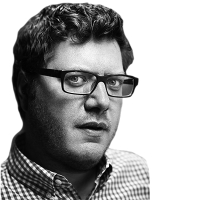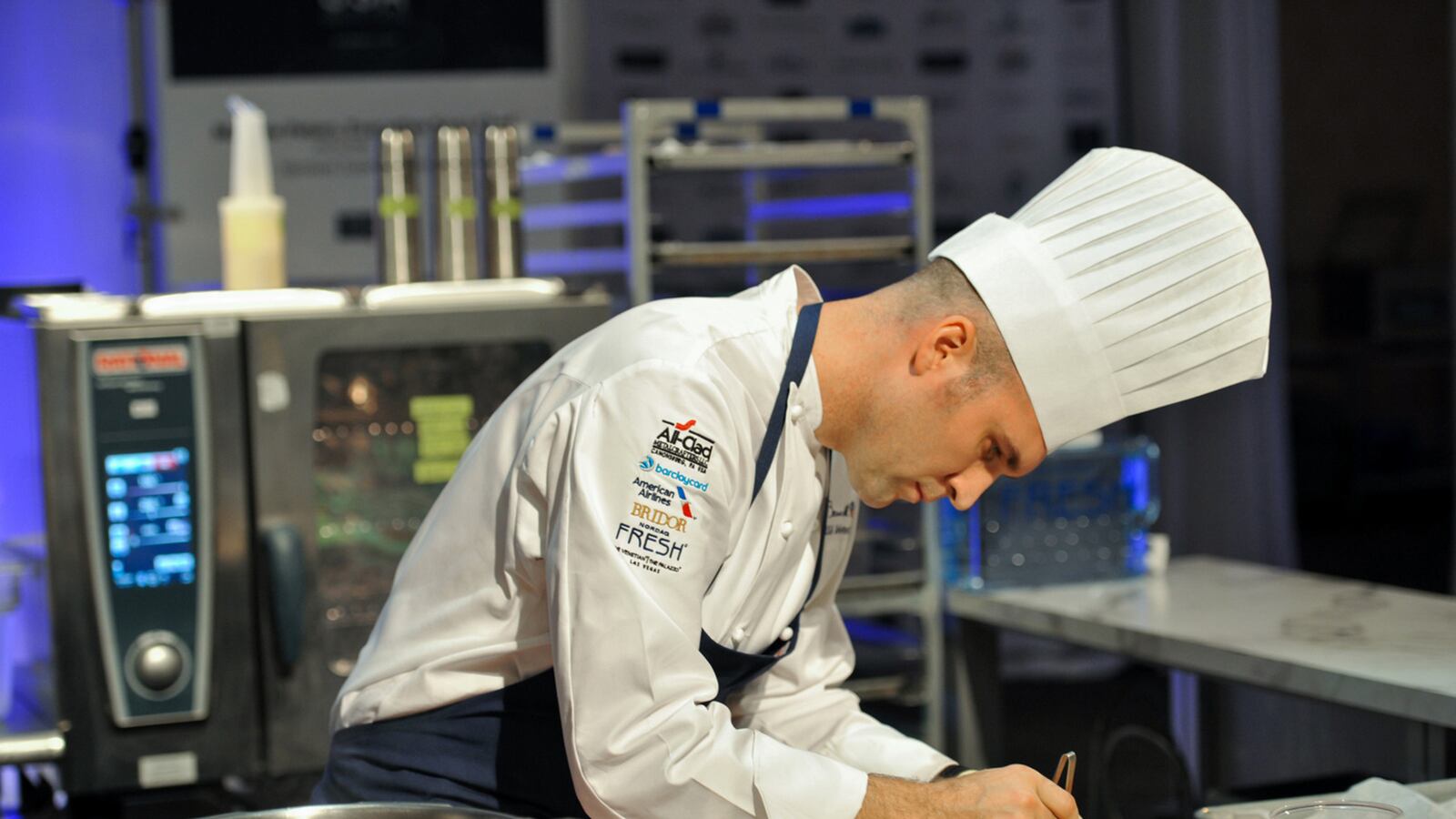Chef Mathew Peters is chasing perfection.
It isn’t some kind of lofty dream, but an actual exercise. For the past eight months—five days a week, at least 12 hours a day—he has cooked an unchanging roster of dishes over and over again in a kitchen in the back of a winery in the middle of Napa Valley, California.
While it might sound like the plot of an intense foreign indie film, the disciplined routine is prepping Peters for the Bocuse d’Or—the ultra-prestigious international cooking competition. Held every other year in Lyon, France, it will next take place in January 2017. Peters is the sole U.S. entrant.

America has competed in the culinary throwdown every year since legendary chef Paul Bocuse started his eponymous competition, in 1987, to publicize the rigors of fine cooking. The U.S. never finished in the top three until last year, when chef Philip Tessier took home the silver Bocuse statue. Peters has a serious shot at besting reigning champion Norway, as well as top teams from France, Sweden, and Denmark, and possibly winning the whole thing. (Everyone tap on a butcher block so as not to jinx him.)
In short, the contest is a big deal. So why have you never heard of it? Well, up until recently, America didn’t have a program dedicated to supporting its Bocuse d’Or team. That all changed eight years ago when chefs Daniel Boulud, Thomas Keller, and Jérôme Bocuse founded The Ment’or BKB Foundation, which funds the training of the country’s competitor.
It is a lot of pressure on the 32-year-old’s shoulders, but Peters is used to cooking at the highest level, having worked at Alain Ducasse’s famed (and now closed) Adour and Thomas Keller’s legendary restaurants the French Laundry and Per Se. Up until last December, when he won the nationals at the Venetian Hotel in Las Vegas, which sent him on his way to the Bocuse d’Or global competition, he was the executive sous chef at Per Se. But even for Peters, who is used to working long days, the competition training has been, he says, “mentally and physically very draining.”
Case in point: Like a twist right out of Top Chef’s playbook, Peters just found out that he and his commis (assistant), Harrison Turone, will need to prepare a platter (big enough to feed 14) that plays off a traditional French chicken-and-crayfish dish and includes three intricate garnishes. It will be judged by a panel of 24 top chefs on several categories. Another fish platter is likely going to be added to the list of dishes he and Turone will be required to cook in the allotted 5½ hours. “It’s experimental right up until the end really,” he says. And that’s not to mention all the action will take place in front of a crowd of spectators.
Peters and Turone (a 21-year-old prodigy) have the unenviable task of giving Boulud, Keller, and Jérôme Bocuse regular tastings so they can assess their progress and give feedback. “It’s stressful at times. It’s good stress. Motivational stress to a degree,” he admits. “It’s not supposed to be easy trying to feed top chefs in the country.”
But, he adds, “Hopefully, you get used to feeding these guys so many times that when you get into the competition it just becomes easier.”

Independent of those tastings, Peters estimates that by the time the competition starts he will have made the platters dozens and dozens of times. “It’s crucial to get as much experience [in] and as many runs as you can in to the point where you’re just going through the motions,” he explains. “We’re trying to perfect [the dishes] to the best of our ability all the way to the end of the competition.”
The next few months will certainly get more intense as January inches closer and the hours of preparation grow longer. Will the chef ever want to make his competition dishes again after the big day is over? “Hopefully, I am doing them again because that means things go well,” he says, since everyone will want to try the statue-winning meal. “If you’re not doing them again then things just didn’t go so well.”






